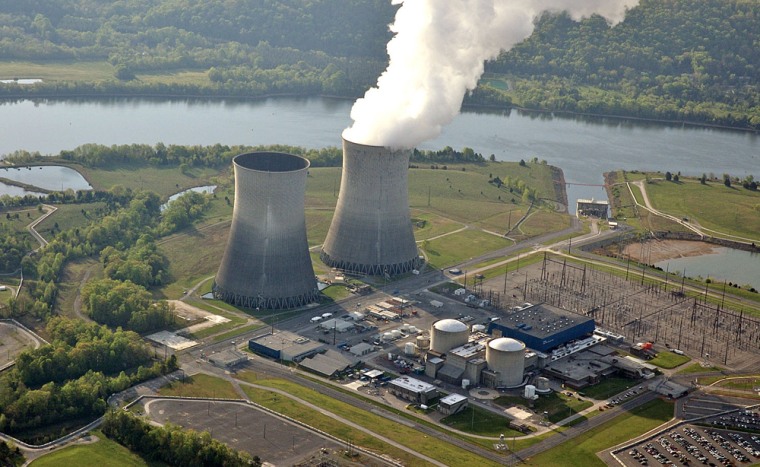High energy prices have become a bitterly contested political issue. Republicans are bashing Democrats for standing in the way of drilling for more oil and gas at home, while Democrats retort that their rivals are misleading the American public by saying that such drilling would significantly lower prices. Yet amid the partisan bomb-throwing over America's future energy policy, Washington is actually making a rare effort to forge a compromise.
Over the summer a group of five GOP and five Democratic senators, dubbed the Gang of 10, hammered out a comprehensive energy proposal. And now, after taking withering heat from both left and right, the idea is gaining support.
Three more senators from each party have officially signed on, and the proposal is expected to come up for a vote in the Senate when Congress returns from the current recess. "We've seen the tide gradually turn," says Senator Saxby Chambliss (R-Ga.), who began the effort with a visit in June to Senate colleague Kent Conrad (D-N.D.). "Thank goodness there are some people willing to work across the aisle."
The proposal contains some items on the Republican wish list, such as opening areas of the Outer Continental Shelf to drilling and boosting nuclear power. The Democrats get incentives for wind, solar, and other renewables along with energy efficiency measures — and pay for much of the projected $84 billion cost by eliminating tax breaks on the oil and gas industry.
"Some environmentalists have serious problems with it, but it's actually a pretty good deal," says Joseph J. Romm, senior fellow at the Center for American Progress, a Democratic think tank, and a top Energy Dept. official in the Clinton Administration.
As the compromise gains momentum, it is creating dilemmas for both parties. There are plenty of reasons to be against it. For one, John McCain's choice for running mate, Alaska Governor Sarah Palin, is a strong advocate of opening up new areas like the Arctic National Wildlife Refuge to the oil and gas industry. Polls also show that Republicans are getting a major boost by blaming Democrats for blocking increases in oil and gas supplies, so why would they give up their best campaign issue?
"One man knows we must now drill more in America and rescue our family budgets: … McCain," says one ad for the GOP Presidential candidate, which accuses Democratic rival Barack Obama of standing in the way.
A compromise with the Democrats would "cut the knees off of Senator McCain," Rush Limbaugh recently charged on his radio show. In addition, oil and gas companies are leaning heavily on their GOP friends to oppose the plan. "Opening up a very, very minor area [to drilling] and punishing the industry while doing it makes absolutely no sense," says Charles T. Drevna, president of the National Petrochemical & Refiners Assn. For their part, Democrats fear losing support among core constituents if they vote to drill.
On the other hand, members of Congress got an earful during the August recess from voters who want action now. "People are increasingly weary of this endless toxic partisanship. They are hungry for results," says North Dakota's Conrad. And it's not just voters who are frustrated. "The business community has finally come to the point where we think there is blame all around," says Jack N. Gerard, president of the American Chemistry Council, which represents the chemical industry. "There's way too much politics and not enough policy."
Chemical companies are upset that Congress hasn't done anything to increase supplies of natural gas, the industry's feedstock. Wind and solar companies warn that failure to renew their tax credits will devastate their industries.
Meanwhile, the narrow escape from Hurricane Gustav, which slammed into the Gulf Coast on Sept. 1, is yet another reminder of the nation's energy vulnerability. With 20 percent of the country's oil production capacity in the Gulf of Mexico, a catastrophic storm would ratchet up the already sharp pain in Americans' pocketbooks.
This delicate political calculus is forcing some in Washington toward compromise. House Speaker Nancy Pelosi (D-Calif.) has agreed to hold a vote on drilling. In early August, Senator John E. Sununu (R-N.H.) won praise from conservatives for not joining the Gang of 10's plan. But he's in a tight race, and New Hampshire has been hit hard by high energy prices. On Aug. 26, Sununu signed on.
If the plan does come up for a vote in the Senate, it will be a key test for both Presidential contenders, forcing them to go on record on a major issue. McCain has yet to get behind the compromise. Lead economics adviser Douglas J. Holtz-Eakin explains that while McCain supports the notion of a bipartisan approach, he doesn't like the repeal of tax breaks for the oil and gas industry. "Senator McCain believes we don't need to be raising taxes," he says.
In contrast, Obama supports the basic framework, along with the general idea of bipartisan compromise. "If I had to reduce the McCain energy platform to a single word, it would be 'drill,' while ours would be 'diversity,'" explains Jason Grumet, Obama's senior adviser on energy. "It's the difference between serious energy policy and slogans."
The proposal still faces an uphill battle. "Both the Left and the Right are quite unhappy with what we came up with," says Conrad. "It's kind of sad that offering solutions to a serious challenge facing the country is seen as being disloyal to one's own party."
Even if the political stars do begin to align, Congress doesn't have much time to broker the deal before the Presidential election, and the Bush Administration vows to veto anything that it believes is a tax increase. Meanwhile, falling oil prices could lessen the urgency of the issue for lawmakers. But Washington insiders say real progress has been made toward a compromise that breaks the gridlock on energy. "Whether it happens in this Congress or the next one, it is clear we are close to getting something done," says Gerard.
